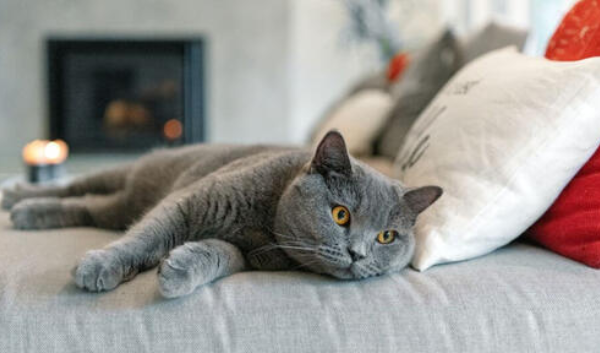British Shorthair Cat Breed Guide
The British Shorthair is one of the most iconic cat breeds in the world, adored for its round face, plush coat, and teddy bear-like demeanor. In New Zealand, they’ve become a popular choice for cat lovers seeking a calm, affectionate, and dignified feline companion. This guide is designed specifically for Kiwi cat owners—whether you're researching breeds or already have a British Shorthair in your life.
Breed Origins & History
The British Shorthair traces its roots back to Roman Britain, where cats were brought over by Roman soldiers to control rodent populations. Over time, they developed into robust, well-muscled cats adapted to Britain’s cooler climate. Following near extinction after World War II, careful breeding programs revitalized the breed, making it one of the most popular pedigree cats worldwide.
In New Zealand, the British Shorthair is a recognised and cherished breed, prized for its calm nature and minimal maintenance.
Appearance & Breed Traits
Coat: Dense, plush, and crisp to the touch
Face: Round head, chubby cheeks, short nose
Body: Sturdy, muscular, and compact
Eyes: Typically copper or gold; blue in some variants
Size: Medium to large (males: 5–8kg, females: 4–6kg)
The breed is perhaps best known for the classic British Blue variant, though they come in a wide array of colours including lilac, black, white, cream, and bi-colour.
Personality & Temperament
British Shorthairs are known for being calm, undemanding, and quietly affectionate. They're ideal for owners who want a companion that’s nearby but not needy.
- Independent yet loving
- Rarely vocal
- Good with children and other pets
- Loyal but not clingy
They prefer to sit beside you rather than on you, and their dignified personality means they dislike being picked up or handled roughly.
Ideal Environment
British Shorthairs are well-suited to apartment living or quieter suburban homes. They enjoy routine and are less likely to climb curtains or get into mischief than more active breeds.
- Quiet corners to nap
- Window seats for sunbathing
- Easy access to litter boxes and fresh water
- Soft beds or cushions (they love comfort!)
While not climbers, they still enjoy horizontal play and some interactive stimulation.
Feeding a British Shorthair
British Shorthairs are prone to weight gain due to their calm temperament and stocky build. Feed a high-quality diet and watch portion sizes closely.
Kittens: Royal Canin British Shorthair Kitten or Hill’s Science Diet Kitten
Adults: Royal Canin British Shorthair Adult, Feline Natural, or Black Hawk Grain Free Chicken
Seniors: Look for low-calorie formulas with joint and heart support
Use puzzle feeders or slow-feed bowls to reduce overeating and stimulate mental activity.
Grooming British Shorthair
Despite their short coat, British Shorthairs shed regularly and benefit from weekly grooming:
- Brush 1–2 times per week
- Use a rubber brush or grooming mitt
- Pay attention to shedding during seasonal changes
- Wipe eyes gently if needed
Their dense coat can trap loose hair and dander, so regular brushing helps prevent matting and keeps your home cleaner.
Health Considerations
While generally a healthy breed, British Shorthairs can be prone to certain hereditary conditions:
- Hypertrophic Cardiomyopathy (HCM): Common heart issue; monitor with annual vet checks
- Obesity: Their low-activity nature makes them prone to weight issues
- Polycystic Kidney Disease (PKD): Less common but worth screening for
Routine vet visits, vaccinations, and weight monitoring are key to long-term health.
Flea & Worm
Even indoor British Shorthairs should be protected from parasites, especially in New Zealand where flea infestations are common.
Fleas: - Monthly treatment is ideal - Recommended options: Bravecto Plus, Advantage for cats, or Revolution Plus
Worms: - Every 3 months minimum - Use Milbemax, Endogard, or Profender Spot-On
Shop PetSupply.co.nz for subscription flea/worm treatments tailored to your cat’s size.
Exercise & Enrichment
Though not athletic, British Shorthairs still need stimulation to stay healthy and avoid weight gain:
Wand toys, soft balls, and battery-operated mice
Puzzle feeders and food mazes
Laser pointer play (short sessions)
Low-to-ground scratching boards
Keep sessions short and gentle—they’re not as agile or hyperactive as other breeds.
Socialisation & Interaction
British Shorthairs are calm and adaptable but need gentle socialisation, especially when young:
- Tolerant of respectful children
- Get along with other quiet pets
- Don’t enjoy rough handling
- Thrive in stable households
They may retreat if overwhelmed but usually emerge once things quieten down.
Is a British Shorthair Right for You?
✅ Ideal for working professionals or families wanting a low-maintenance cat
✅ Excellent with kids and calm pets
✅ Not overly vocal or demanding
❌ Not a lap cat or particularly playful into adulthood
Final Thoughts
The British Shorthair is a dignified, affectionate, and low-maintenance breed that suits many Kiwi lifestyles. Whether you live in a flat in Auckland or a rural home in Canterbury, this breed is adaptable, easygoing, and incredibly charming.
Visit PetSupply.co.nz for everything your British Shorthair needs—from premium breed-specific food to flea and worming treatments, toys, and bedding.

